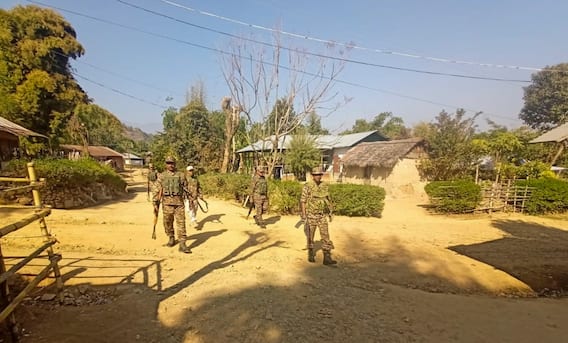'Phishing Attack': Supreme Court Warns Of Fake Website Seeking Personal Information
Supreme Court Phishing Attack: The Supreme Court Registry said the attackers, using the fake website, were soliciting personal details and confidential information.

The Supreme Court on Thursday issued a circular warning the public of a fake Supreme Court website created for "phishing attack". The Supreme Court Registry said the attackers, using the fake website, were soliciting personal details and confidential information.
"A fake website, impersonating the official website has been created and hosted on the URL -- http://cbins/scigv.com and https://cbins.scigv.com/offence," the SC Registry said.
"Any visitor on the above URLs is strongly advised not to share and divulge any personal and confidential information, as the same shall enable the perpetrators to steal the information," the circular said.
The registered user of the domain name of the Supreme Court is www.sci.gov.in. The Supreme Court also clarified that it doesn't seek any personal information, financial information or confidential information from any person.
In particular, the apex court said the second URL, which has the header "Offence of Money-Laundering", was being used to steal people's personal details like credit and debit card information.
READ | Article 370 Hearing: Ready For Polls In J&K Anytime Now, Centre Tells SC
The fake website has various boxes like bank name, phone number, PAN, online banking username, 'log-in password' and 'card password'.
"In case you have been a victim of the above phishing attack, please change your passwords for all your online accounts and also contact your bank, credit card company, to report such unauthorised access," the Supreme Court notice said.
Chief Justice of India DY Chandrachud has also warned lawyers, litigants about the fake website and asked them to be careful with monetary transactions, PTI reported.
The Supreme Court registry has flagged the matter to law enforcement agencies to investigate the phishing attack and take action against the perpetrators.
In the notice, the SC registry advised the public to neither click nor share on links they receive without verifying the authenticity.
In 2018, the Supreme Court's official website was suspected to be hacked. However, an SC official release called it a "technical glitch" that was sorted out soon.
A screenshot of the website showed a picture of a cannabis leaf, with a message saying "hackeado por HighTech Brazil HacTeam".
Trending News
Top Headlines










































